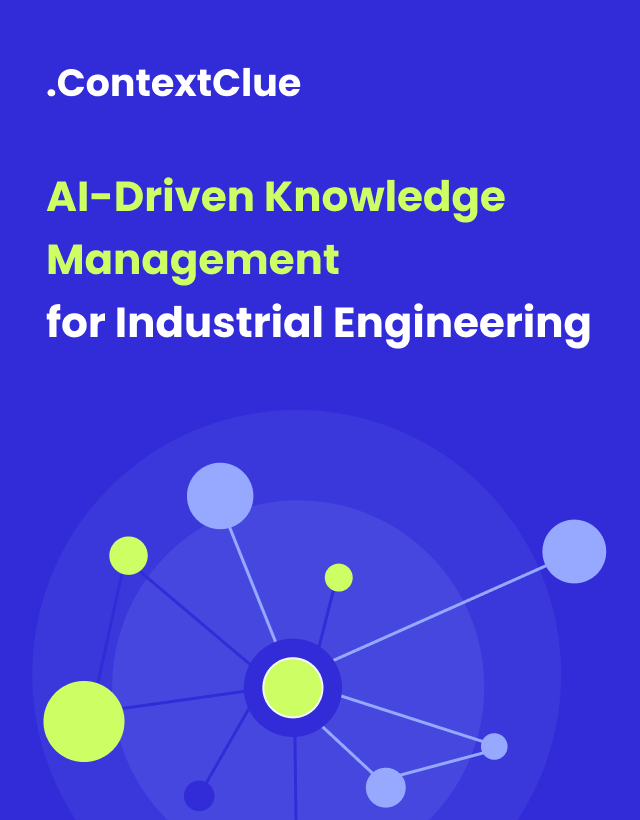
October 01, 2025
Top AI Consulting Companies Based in Europe: The Strategic Case for Regional Expertise
Author:

Reading time:
16 minutes
The global AI consulting landscape spans from established enterprise giants to specialized boutique firms—each bringing distinct capabilities, from massive scale and worldwide reach to focused expertise in niche domains. Our previous ranking of top AI consulting companies operating globally highlighted leaders across this spectrum, showcasing the diversity of approaches available to organizations pursuing AI transformation.
Yet for many European organizations embarking on AI transformation, a critical question remains unanswered: Does geographic location actually matter when selecting an AI consulting partner?
The answer, increasingly, is yes – and for reasons that go far beyond convenience.
As the European Union establishes itself as the world’s most sophisticated regulator of artificial intelligence, and as AI initiatives move from experimental pilots to mission-critical deployments, two factors have emerged as crucial differentiators: regulatory compliance expertise and operational collaboration quality. Both are directly influenced by whether your consulting partner maintains substantial European operations.
This ranking identifies the leading AI consulting firms based in Europe, not as a contradiction to global rankings, but as complementary strategic intelligence for decision-makers navigating the unique European context.
Some firms from our global list reappear here due to their robust EU presence. Others, despite global prominence, are notably absent because they lack the regional depth that European enterprises increasingly require.
Disclaimer: Addepto is included in this analysis. Our firm was assessed using the same criteria applied to all other providers. Readers should take this into account when reviewing the findings and evaluate all firms according to their own project requirements.
Europe’s Top 10 AI Consulting Firms
1. Addepto (Poland)
Headquarters: Warsaw, Poland
Founded in Warsaw, Addepto has grown into a leading force for enterprise AI consulting across Central and Western Europe. The firm distinguishes itself through its proprietary ContextClue platform, which uses large language models to make industrial knowledge accessible across organizations, a critical capability for European manufacturers navigating digital transformation while maintaining regulatory compliance.
Addepto’s “discovery-to-deployment” service model reflects the kind of end-to-end commitment that European enterprises require. Rather than delivering abstract strategies or proof-of-concepts, the firm maintains engagement through production deployment and ongoing optimization.
Notable Projects:
- Product traceability AI system for Jabil, addressing supply chain transparency requirements increasingly mandated by EU regulations
- Demand forecasting platform for InPost parcel delivery, optimizing logistics across Central European markets
- AI-powered document automation for the aviation industry, navigating strict safety and compliance documentation requirements
Key Clients: Jabil, Hertz, ABB, InPost, TUI, Spirit AeroSystems, Woodward
Core Competencies: Custom AI/ML solutions, generative AI, data engineering, MLOps, LLM deployment, AI knowledge management

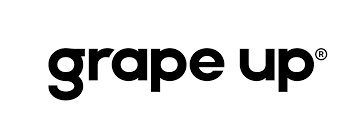
2. GrapeUp
Headquarters: Kraków, Poland
GrapeUp specializes in cloud-native AI and legacy system modernization, particularly for automotive and insurance clients. In a European context where many enterprises operate decades-old core systems, GrapeUp’s ability to bridge legacy infrastructure and modern AI capabilities is strategically valuable.
GrapeUp’s platform-oriented methodology delivers reusable AI infrastructure rather than one-off solutions, creating compounding value for enterprises planning sustained AI investment.
Notable Projects:
- Comprehensive AI/ML platform for global automotive OEMs, enabling vehicle intelligence and connected car capabilities
- Real-time streaming analytics for telematics applications, processing massive data volumes from vehicle fleets
- DevOps transformation for insurance and telecommunications clients, modernizing deployment practices
Key Clients: Major automotive groups, European insurers, Italian telecommunications providers, Asian banks, government agencies
Core Competencies: Cloud-native AI, platform design, ML infrastructure, DevOps, streaming analytics, open-source integration


3. Sigma Software
Headquarters: Stockholm, Sweden (with major operations in Ukraine)
Sigma Software originated in Ukraine and is now part of Sweden’s Sigma Group. This hybrid model delivers exceptional value: Swedish proximity and regulatory expertise combined with Ukrainian technical talent at competitive rates.
The firm has built particular strength in telecom, finance, and automotive AI – three sectors where European regulatory requirements are especially complex and where operational excellence directly impacts competitive positioning.
Notable Projects:
- Infant speech modeling for cognitive laboratories, demonstrating capabilities in sensitive healthcare AI applications
- Financial document automation for Nordic banks, navigating GDPR and financial services regulations
- Churn prediction systems for European telecom operators, optimizing customer retention in highly competitive markets
Key Clients: Volvo, SAS, Telia, Nordic banks, global telecommunications providers
Core Competencies: Machine learning, generative AI, NLP, predictive analytics, AI security, enterprise solution deployment

4. Miquido
Headquarters: Kraków, Poland
Miquido has built its reputation by fusing design excellence with AI capabilities – a combination that produces not just functional AI systems, but solutions that users actually embrace. For European enterprises struggling with AI adoption and change management, this user-centric approach addresses one of the primary failure modes of AI transformation.
Miquido’s particular strength in media, music, and healthcare reflects expertise in industries where user experience isn’t optional – it’s the entire value proposition.
The firm’s work spans creative GenAI applications, intuitive mobile experiences, and conversational AI that feels natural rather than robotic.
Notable Projects:
- AI credit scoring system for Nextbank, modernizing financial services while maintaining regulatory compliance
- Plant image recognition platform for Planter, demonstrating computer vision expertise applied to consumer applications
- Generative AI chatbot for Verseo, creating engaging conversational experiences
Key Clients: Warner Music, Dolby, Abbey Road Studios, TUI, Orlen mFlota, Nolej, PZU, Verseo
Core Competencies: Product strategy, generative AI, rapid ML integration, conversational AI, predictive analytics

5. Cambridge Consultants (UK)

Headquarters: Cambridge, United Kingdom
Cambridge Consultants has earned its reputation not through marketing but through tangible innovation: seeding technology unicorns, commercializing first-to-market AI applications, and solving problems at the frontier of what’s technically possible.
Cambridge Consultants’ strength in IoT, bioinformatics, and sensor analytics positions it for the convergence of AI with physical systems – critical for European manufacturing, pharmaceuticals, and energy sectors where digital transformation means more than software.
Notable Projects:
- Bioinformatics automation for pharmaceutical research, accelerating drug discovery timelines
- Energy IoT solutions enabling smart grid optimization and renewable energy integration
- Advanced sensor analytics for industrial and medical applications
Key Clients: Pharmaceutical laboratories, medical device manufacturers, energy conglomerates, emerging technology startups
Core Competencies: Systems engineering, IoT and sensor analytics, research-grade AI innovation, technology commercialization

6. Valcon
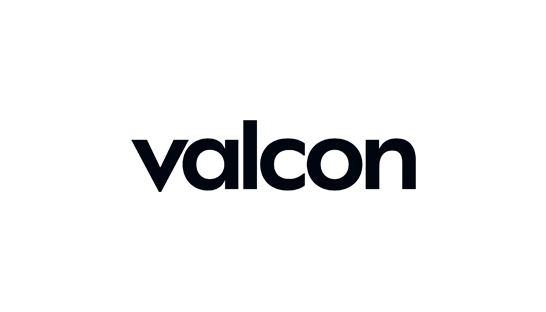
Headquarters: Denmark
Valcon represents a distinctive model in European AI consulting: a hybrid firm combining management consulting rigor with technical delivery capability. While many firms excel at strategy or execution, Valcon’s strength lies in spanning both, working directly with boards and C-suites on business transformation strategy, then driving technical implementation to ensure strategies actually materialize.
This Scandinavian consultancy has built particular expertise in digital and AI-enabled business transformation for logistics and manufacturing – sectors where operational excellence determines competitive survival and where AI isn’t about novelty but about sustained operational advantage.
Notable Projects:
- Comprehensive business process digitization for logistics and manufacturing enterprises
- AI-driven organizational restructuring for Nordic conglomerates
- Strategic AI roadmapping and execution for multinational clients
Key Clients: Nordic corporate boards, multinational enterprises, regional manufacturers and logistics providers
Core Competencies: AI strategy development, process analysis and reengineering, digital transformation, organizational change management

7. Deviniti
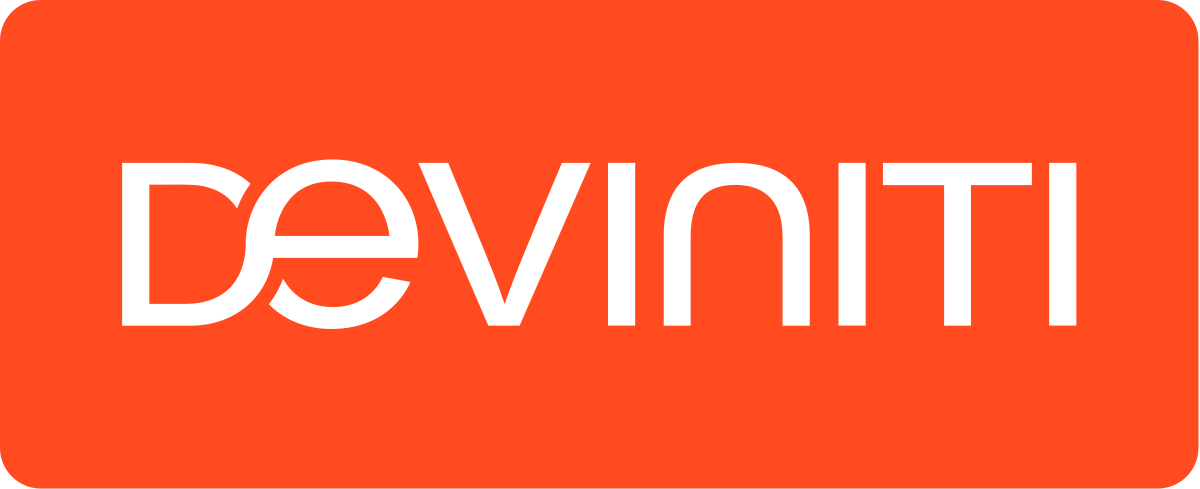
Headquarters: Poland
While many companies experiment with GenAI, Deviniti focuses on production deployment in environments where errors carry regulatory and financial consequences.
The firm’s specialization in ML-powered compliance platforms and process redesign reflects deep understanding of European regulatory environments, particularly in financial services where compliance costs consume substantial operational budgets.
Notable Projects:
- AI compliance automation for Polish financial sector, streamlining regulatory reporting and risk management
- Generative AI workflow orchestration for regulated enterprises
- Process automation addressing sector-specific compliance requirements
Key Clients: Banks, government agencies, regulated enterprises across financial services and public sector
Core Competencies: Generative AI, LLM deployment, workflow automation, regulatory compliance, sector-specific solutions

8. Deeper Insights
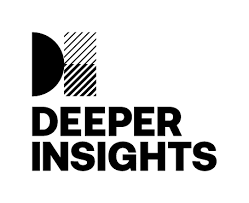
Headquarters: London, United Kingdom
Deeper Insights has built a focused practice around a specific technical challenge: extracting intelligence from complex, high-volume, unstructured data. In an era where European enterprises drown in documents, PDFs, scanned records, and unstructured text, this specialization addresses a pervasive operational bottleneck.
The firm’s expertise in document intelligence and unstructured data mining proves particularly valuable for healthcare, government, and enterprise clients managing decades of accumulated information that traditional systems can’t process.
Notable Projects:
- Universal Data Insights (UDI) platform for unstructured data mining across enterprise document repositories
- AI automation for river restoration projects (Rebalance Earth), demonstrating environmental applications
- Comprehensive site assessment automation for Oxford International
Key Clients: Oxford International, Rebalance Earth, financial services firms, real estate companies
Core Competencies: Document intelligence, NLP, computer vision, agile AI integration, custom model deployment

9. DataRoot Labs
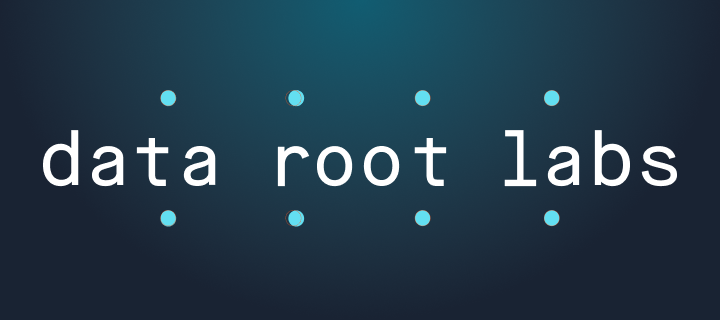
Headquarters: London, United Kingdom (with operations in Ukraine)
Founded by technology entrepreneurs in London, DataRoot Labs occupies a distinctive niche: R&D-heavy generative AI development focused on startup acceleration and innovation.
This focus on early-stage innovation and rapid prototyping serves a critical segment of the European AI ecosystem: venture-backed companies that need production-quality AI engineering without enterprise consulting timelines or budgets.
Notable Projects:
- Generative AI MVPs for European technology startups
- Rapid prototyping and technical validation for VC-backed scaleups
- Research and development partnerships accelerating innovation timelines
Key Clients: Technology startups, venture capital firms, fintech companies, early-stage scaleups
Core Competencies: Generative AI, machine learning, startup R&D, rapid prototyping, technical due diligence

10. Imaginary Cloud
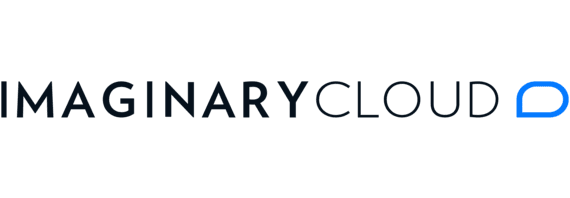
Headquarters: Lisbon, Portugal
Imaginary Cloud brings Southern European creativity to AI consulting, emphasizing user experience and design in every technical solution. Based in Lisbon’s growing technology hub, the firm focuses on NLP, generative AI, and algorithmic innovation for retail, media, and education sectors where user engagement determines business success.
The firm’s UX-first approach to AI development reflects understanding that technical sophistication without user adoption delivers minimal value. For consumer-facing AI applications and internal tools where adoption isn’t mandated, this design emphasis proves critical.
Notable Projects:
- NLP-powered retail platforms enhancing customer experience and personalization
- Generative AI applications for educational technology, making learning more engaging and adaptive
- Algorithm engineering for web and mobile applications requiring sophisticated AI capabilities
Key Clients: Retailers, media companies, educational technology firms
Core Competencies: UX-first generative AI, NLP, algorithm engineering, web and mobile AI integration

Why Geography Matters: Two Critical Factors
1. Regulatory Compliance & Risk Mitigation
Organizations subject to the EU AI Act, GDPR, or sector-specific European regulations (NIS2, DORA, MDR).
The European Union isn’t just regulating AI – it’s shaping global governance. The EU AI Act, now phasing in (2024–2027), is the world’s first comprehensive legal framework for artificial intelligence. It’s binding law, with severe penalties for non-compliance.
For AI leaders, the message is clear: compliance must be built into systems from the start – not patched in later.
European consultancies bring unique advantages:
- Regulatory fluency. European consultants don’t just study the EU AI Act—they operate within it. They join industry groups, work with national regulators, and understand how rules differ across member states. When Germany interprets high-risk AI differently than France, they know how to navigate it.
- Risk classification expertise. The EU AI Act revolves around system risk levels: prohibited, high, limited, or minimal. Each category requires a different compliance path. Misclassification can cost months in delays, millions in fines, and lost market share. European firms have developed tested frameworks through direct regulatory experience.
- Data sovereignty know-how. GDPR reshaped data governance, and AI makes it more complex: training data provenance, model explainability, and cross-border data flows. European consultants know which cloud regions qualify, how to design localized architectures, and how to meet adequacy requirements.
- Sector integration. Finance must align AI with DORA and MiFID II; healthcare with MDR; critical infrastructure with NIS2. European consultants work daily at these intersections, reducing costly missteps.
Choosing consultants without EU expertise risks audits that uncover structural flaws, delayed launches, and fines up to €35 million or 7% of global turnover. The fee difference between European and non-European firms is measured in thousands. The cost of non-compliance is measured in millions, plus lost market opportunities.
2. Operational Efficiency & Collaboration Quality
Organizations needing close, hands-on consulting during AI transformation. AI transformation is a demanding, collaborative process. Proximity directly affects execution – something videoconferencing can’t fully replace.
- Timezone alignment. Critical sprint bugs or board prep can’t wait 12 hours. European consultants answer in real time, during your workday.
- On-site presence. Workshops, training, and design sessions benefit from physical interaction. European firms can mobilize teams in hours, not weeks, and sustain embedded models without excessive travel.
- Hidden travel costs. Flying consultants across continents inflates costs and creates friction- slower scheduling, higher expenses, and weaker knowledge continuity. Over a 12-month program, “cheaper” offshore consultants often cost more.
- Cultural alignment. European consultants understand local works councils, procurement rules, and governance dynamics. They adapt to the distinct ways German, French, or Nordic organizations make decisions, accelerating execution.
Up to 80% of AI initiatives fail to scale beyond pilots, not because of tech, but because of poor change management, weak stakeholder alignment, or limited collaboration. Geographic proximity means stronger relationships, earlier issue detection, and higher success rates. In million-euro transformations, chasing the lowest hourly rate is false economy. Success depends on the quality and having consultants who can show up when it matters.
The Strategic Decision Framework
Choosing between global and European-based AI consulting isn’t binary. Many organizations benefit from a hybrid model, leveraging global firms for niche expertise while relying on European partners for regulatory and operational depth. The key is to align your choice with your business needs.
| Prioritize European Consulting When… | Prioritize Global Firms When… |
|---|---|
| Your AI systems fall under EU AI Act high-risk classifications | You need highly specialized expertise unavailable in Europe |
| You operate in heavily regulated EU sectors (finance, healthcare, critical infrastructure) | Your AI initiative is primarily US or Asia-focused with limited EU impact |
| Success depends on intensive change management and stakeholder engagement | You can accept higher coordination friction for unique skills |
| You need rapid regulatory or market response capability | Your organization is comfortable with fully remote collaboration |
| Your timeline is aggressive and can’t absorb international coordination delays | Regulatory compliance is straightforward or non-critical |
| Your culture values face-to-face collaboration during key project phases | |
| You require embedded consultant models over extended periods |
Conclusion
The European AI consulting landscape offers sophisticated options for organizations navigating the continent’s regulatory and operational environment. These ten firms combine AI expertise, European presence, and proven delivery capability, each with distinctive strengths for different needs.
But geography should never be your primary selection criterion. Experience, domain knowledge, and business acumen matter far more than location.
AI transformation isn’t a plug-and-play technical exercise. It demands deep understanding of your industry’s workflows, regulatory constraints, competitive dynamics, and organizational culture. The most sophisticated machine learning models deliver zero value if they don’t align with business realities or if your organization can’t adopt them.
Successful AI consulting requires:
- Domain expertise in your specific industry and use cases
- Business competence to translate technical capabilities into operational value
- Proven track records with similar transformations
- Change management capability to drive organizational adoption
- Technical depth matched to your ambition
A mediocre consultant in your timezone won’t become effective through proximity. A world-class firm with limited European presence but exceptional expertise may still be your best choice.
Geography matters when experience is comparable. European presence becomes a differentiator when two firms offer equivalent capabilities. But never sacrifice expertise for convenience.
The firms in this ranking earned their positions by delivering exceptional AI consulting while maintaining regional advantages. They represent options where deep expertise and European presence converge – not firms chosen solely for location.
Choose your partner based on who can actually deliver results. Geography is an advantage, not a substitute for excellence.
FAQ: AI Consulting Companies in Europe
What makes European AI consultants different from global firms?
European AI consultants typically offer stronger expertise in EU regulatory compliance (particularly with the EU AI Act and GDPR), better timezone alignment for real-time collaboration, easier on-site presence, and cultural alignment with European business practices.
Is it always better to choose a European consultant for EU-based projects?
Not necessarily. While European firms offer advantages in regulatory compliance and operational efficiency, the decision should primarily be based on expertise, domain knowledge, and proven track record. A global firm with exceptional expertise may still be the best choice for specialized needs.
How important is the EU AI Act for my AI initiatives?
The EU AI Act is critically important for any organization deploying AI systems in Europe. It establishes binding legal requirements with severe penalties for non-compliance (up to €35 million or 7% of global turnover). The Act classifies AI systems by risk level, with different compliance requirements for each category.
Can’t we just adapt our AI systems for EU compliance later?
Retrofitting compliance into existing AI systems is significantly more costly and risky than building it in from the start. Many compliance requirements affect fundamental architecture decisions and data governance practices that are difficult to change once implemented.
What questions should I ask when evaluating AI consultants?
Ask about their experience with similar projects in your industry, their approach to regulatory compliance, their local presence and collaboration model, their technical capabilities specific to your use cases, and references from clients with similar challenges.
Category:







